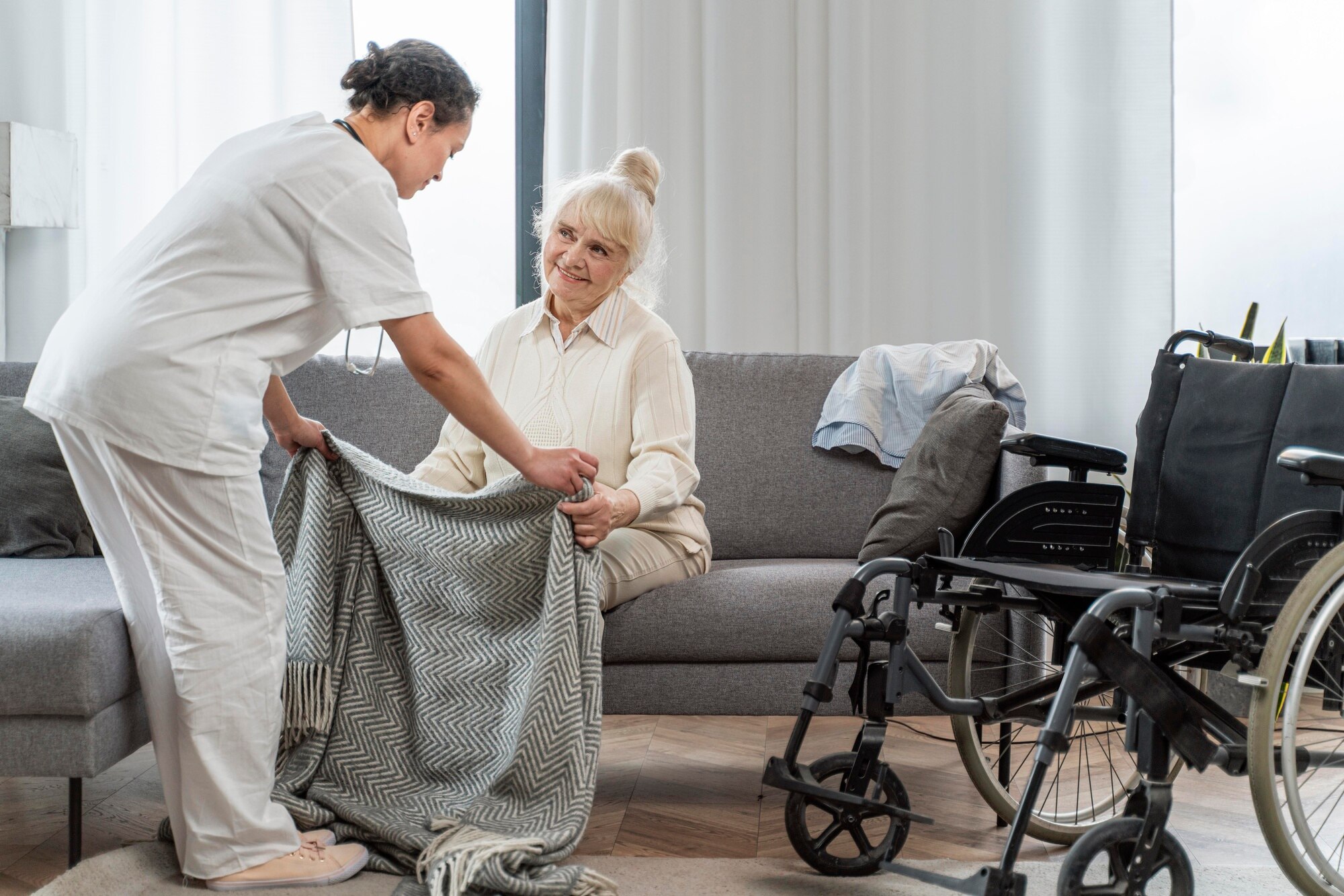When navigating elder care decisions for a parent or loved one, you want solutions that provide the necessary support while preserving their independence and dignity.
Today’s elder care options offer promising alternatives to the traditional “all or nothing” choices families once faced.
Understanding Your Elder Care Options
For many families, conventional elder care choices have felt limiting.
You might wonder if there are better options than either leaving your loved one without adequate support at home or moving them to a facility where their independence might be compromised.
Modern elder care approaches recognize this challenge.
They acknowledge that effective support must address not just physical safety but also emotional well-being, social connections, and your loved one’s sense of purpose and identity.
Assessing Your Loved One’s Needs: An Elder Care Checklist
Before exploring specific solutions, consider creating an elderly parent care checklist that covers:
- Daily living assistance needs (bathing, dressing, meal preparation).
- Medication management requirements.
- Mobility challenges and fall risks.
- Cognitive health considerations.
- Social and emotional well-being.
- Transportation needs.
- Home safety concerns.
This assessment helps determine whether you need occasional companion care for elderly family members or more comprehensive support, including overnight care for elderly loved ones.
In-Home Elder Care: Maintaining Independence
If your loved one wishes to remain at home, as most seniors do, several options can make this choice safer and more feasible:
Professional In-Home Care Services
- Companion Care for Elderly: Social interaction, light housekeeping, and activity assistance.
- Personal Care Assistance: Help with bathing, dressing, and other daily needs for elderly care.
- Overnight Care for Elderly: Supervision and assistance during nighttime hours.
- Respite Care for Elderly: Short-term relief for family caregivers.
- 24-Hour Care for Elderly at Home: Comprehensive round-the-clock support.
Understanding the Cost of In Home Care for Elderly
Many families worry about the costs of elderly care at home. The reality is that in-home elder care cost varies based on:
- Level of care needed.
- Hours of assistance required.
- Geographic location.
- Caregiver qualifications.
While the cost of home care for elderly loved ones is a consideration, many families find it comparable to or less expensive than facility care, especially when considering:
- Long-term care insurance benefits.
- Veteran benefits.
- Healthcare savings accounts.
- Home equity options are specifically designed for funding care needs.
Technology That Enhances Elder Care
Elder care technology has transformed how we support aging loved ones at home:
Smart Home Solutions
- Voice-activated systems that control lights, temperature, and entertainment.
- Motion sensors that detect falls or unusual activity patterns.
- Automated medication dispensers.
- Video doorbells and security systems.
Health Monitoring Technologies
- Wearable devices that track vital signs and activity levels.
- Sensors that detect changes in routine.
- Telehealth platforms for remote healthcare provider connections.
- Medication management systems.
Mobility and Transportation Solutions
For families concerned about elderly getting in and out of car safely:
- Car transfer aids for elderly family members.
- Car assistance for elderly through specialized services.
- Vehicles with accessibility features.
These elderly care products and technologies reduce worry while helping maintain your loved one’s privacy and independence.
The Human Element: What Makes Elder Care Truly Exceptional

While technology plays an important role, meaningful human connections remain at the heart of quality elder care:
Relationship-Based Caregiving
The relationship between your loved one and their elderly care assistant fundamentally shapes their experience:
- Consistent caregiver assignments that allow trust to develop.
- Thoughtful matching based on personality and interests.
- Scheduling that allows time for meaningful interaction.
- Caregivers trained to recognize and respect preferences and routines.
Strength-Based Approaches
Innovative elder care focuses on capabilities rather than just limitations:
- Support that builds on remaining abilities.
- Care plans that incorporate lifelong interests and passions.
- Approaches that respect wisdom and experience.
- Strategies that maintain a sense of purpose and contribution.
Specialized Care Situations
After Hospital Care for the Elderly
When your loved one returns home after hospitalization, they may need:
- Medication management
- Wound care
- Physical therapy support
- Increased monitoring
- Nutritional support
Elderly Care While on Vacation
When you need to travel:
- Short-term respite care for elderly family members
- Temporary increased support
- Peace of mind while you’re away
Palliative Care Options
For conditions like palliative care for kidney failure in elderly patients:
- Comfort-focused care
- Symptom management
- Emotional support
- Family guidance
Support for Family Caregivers
If you’re taking care of elderly parents yourself, you deserve support too:
Practical Training and Resources
- Skills training for safe transfers and personal care.
- Education about specific conditions.
- Guidance on navigating healthcare systems.
- Access to specialized equipment.
Preserving Your Wellbeing
- Short-term respite care for elderly loved ones when you need breaks.
- Connection with others who understand your experience.
- Strategies for managing stress and preventing burnout.
- Resources for balancing caregiving with other responsibilities.
Kizuna: Elder Care Solutions Centered on Dignity
At Kizuna, we understand the complex emotions involved in elder care decisions.
We take time to know your loved one as an individual with unique preferences and a lifetime of experiences.
Our carefully selected caregivers, only the top 10% of applicants, receive specialized training in preserving dignity while providing necessary support.
Whether your family needs occasional companion care for elderly parents or more comprehensive support, including overnight care for elderly loved ones, we’re here to help you navigate this important transition with sensitivity and respect.
Our elder care solutions include:
- Carefully matched caregivers for compatibility.
- Flexible scheduling from a few hours to 24-hour care.
- Specialized training in memory care and mobility assistance.
- Regular family updates and care coordination.
Contact us to discuss how our innovative elder care approaches can help your loved one maintain independence and dignity while giving your family peace of mind.



